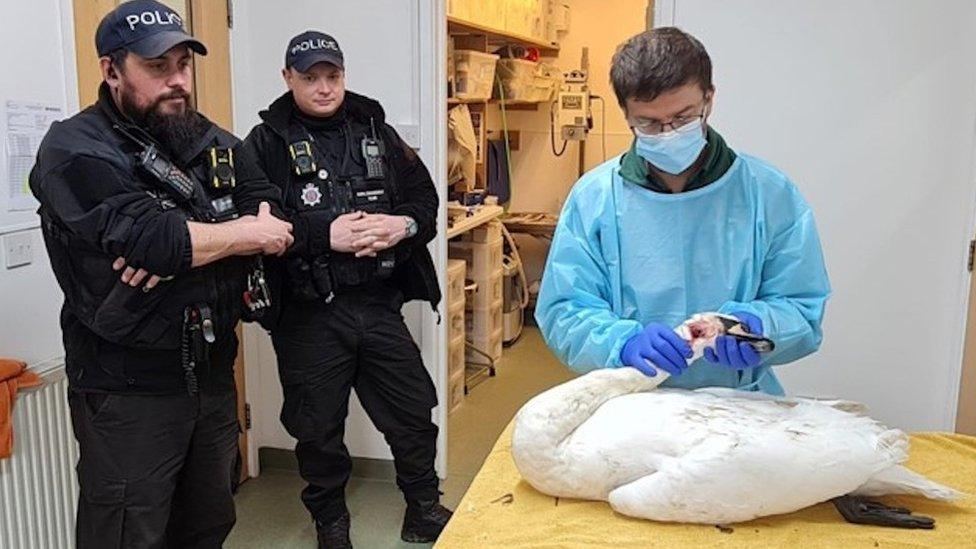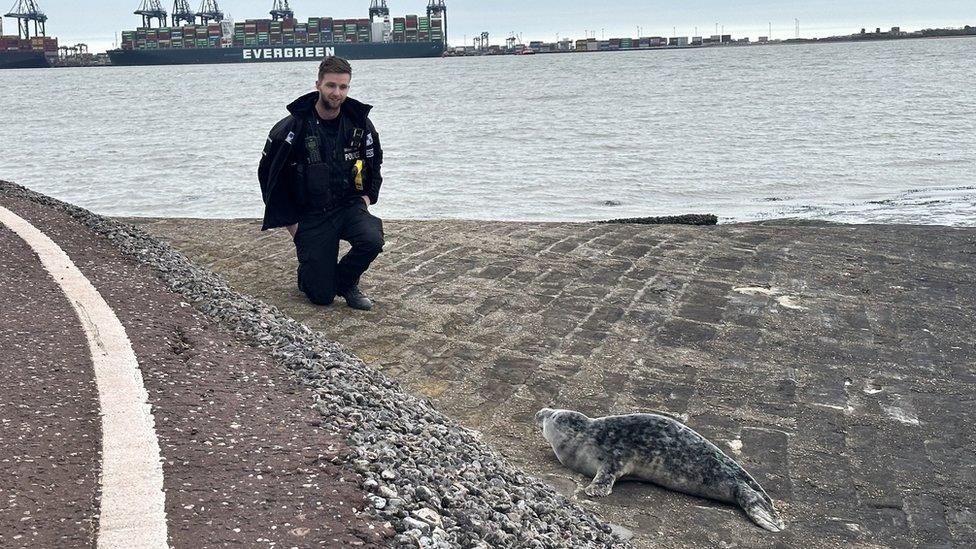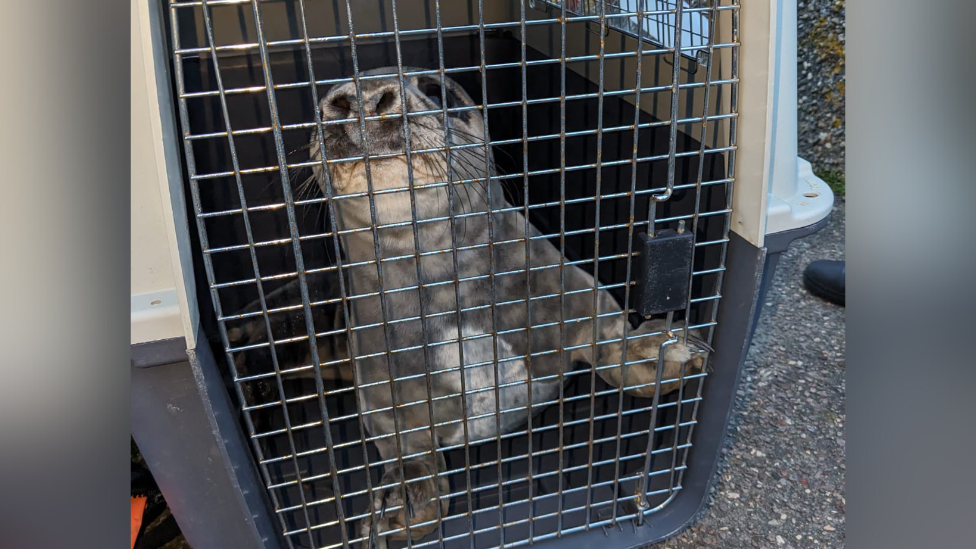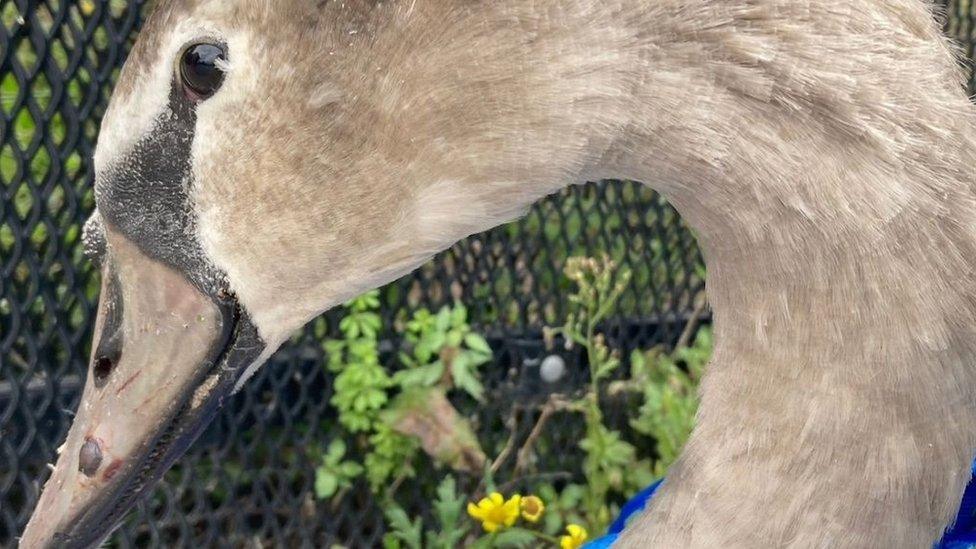Animal cruelty cases on the rise - Essex Police
- Published

Police officers watch a vet at South Essex Wildlife Hospital treat an injured swan that was shot
A rise in cases of animal cruelty has been recorded by police who have found wildlife deliberately shot by weapons including catapults and crossbows.
Essex Police have appealed for the public's help in "tackling a disturbing crime trend" which sees wild animals cruelly targeted for so-called fun.
Officers said foxes, otters and swans were among the animals found injured or suffering "long and painful" deaths.
Causing pain and suffering to an animal is illegal, the force added.
Wildlife crime and heritage officer PC Jed Raven said: "Some people think it's just a bit of harmless fun but the animal or bird they hit could suffer a long and painful death as a result.
"It's not just catapults - people sometimes target wildlife with air weapons and crossbows.
"But any way you look at it, it's dangerous and it is cruel. And animal cruelty can be a precursor to more serious crimes.
"Anyone who walks in, or patrols, our parks and towns are our eyes and ears. We need you to tell us what you know."

An officer attends the scene after people were seen throwing stones and apples at a distressed seal pup
Police said causing deliberate injury to animals was a rising trend both locally and nationally, and there had been an increase in reports made to them and the RSPCA.
Areas of particular concern in Essex included Chafford Gorges Nature Discovery Park, near Grays, and Northlands Park, Basildon, the force said.
PC Raven is the national police lead for Operation Lakeshot, which focuses on education and preventing reoffending as well as detection and bringing offenders to justice.

Follow East of England news on Facebook, external, Instagram, external and X, external. Got a story? Email eastofenglandnews@bbc.co.uk, external or WhatsApp 0800 169 1830
Related topics
- Published17 March 2024

- Published15 January 2024
